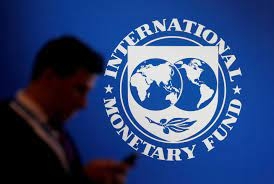International Monetary Fund (IMF): Promoting Economic Stability and Cooperation

In this blog post, we will explore the International Monetary Fund (IMF), its purpose, founding, location, significance, historical examples, and opportunities to join as staff or volunteer. The IMF plays a crucial role in fostering global economic stability, providing financial assistance, and promoting international monetary cooperation among its member countries.

The International Monetary Fund (IMF) is an international organization established in 1944 with the primary goal of promoting global economic stability and growth. It serves as a forum for cooperation among its 190 member countries and provides financial assistance, policy advice, and technical expertise to help countries address economic challenges.
The headquarters of the IMF is located in Washington, D.C., United States. Being situated in the heart of the international financial community, the IMF has proximity to other important institutions such as the World Bank and various government agencies, facilitating coordination and collaboration in promoting global economic stability.

Significance
- Financial Assistance: The IMF plays a critical role in providing financial support to member countries facing economic crises or balance of payment difficulties. It offers loans and financial assistance packages that aim to stabilize economies, restore confidence, and promote sustainable growth.
- Policy Advice and Technical Assistance: The IMF provides policy advice and technical assistance to member countries, helping them design and implement effective economic and financial policies. This includes guidance on fiscal management, monetary policy, exchange rate frameworks, and structural reforms, with the goal of promoting stability, reducing poverty, and fostering inclusive economic growth.
- Global Economic Surveillance: The IMF conducts regular assessments of the global economy, known as the World Economic Outlook, to identify potential risks, vulnerabilities, and policy challenges. Through its analysis and research, the IMF provides valuable insights to member countries and the international community, helping them make informed decisions and take appropriate policy measures.

Examples from History
- Asian Financial Crisis (1997-1998): During the Asian financial crisis, the IMF played a pivotal role in providing financial assistance and policy advice to affected countries such as South Korea, Thailand, and Indonesia. The IMF's support helped stabilize their economies, restore investor confidence, and initiate structural reforms, contributing to their eventual recovery.
- Global Financial Crisis (2007-2009): In the aftermath of the global financial crisis, the IMF played a crucial role in assisting countries affected by the economic downturn. It provided financial support, technical assistance, and policy advice to countries such as Greece, Ireland, and Iceland, helping them navigate the crisis and implement necessary reforms.

Opportunities to Join
- Employment: The IMF offers employment opportunities in various fields, including economics, finance, research, and administration. Interested individuals can visit the IMF's official website and navigate to the "Careers" section to explore job vacancies and learn about the application process.
- Internship: The IMF also provides internship programs for students and recent graduates, offering valuable work experience and exposure to international economic issues. Information on internship opportunities, eligibility criteria, and application procedures can be found on the IMF's website.

The International Monetary Fund (IMF) plays a vital role in promoting global economic stability, offering financial assistance, policy advice, and technical expertise to its member countries. Through its interventions during economic crises, provision of policy guidance, and global economic surveillance, the IMF contributes to fostering sustainable growth and cooperation among nations. By joining the IMF as staff or a volunteer, individuals can actively participate in shaping the international economic landscape and making a positive impact on global economic stability.

Sources:
- International Monetary Fund. (n.d.). Retrieved from https://www.imf.org/
- "About the IMF." International Monetary Fund. Retrieved from https://www.imf.org/en/About
- International Monetary Fund. (2021). Annual Report 2021: Building a Better Future. Retrieved from https://www.imf.org/en/Publications/Annual-Report
- International Monetary Fund. (2021). World Economic Outlook: Managing Divergent Recoveries. Retrieved from https://www.imf.org/en/Publications/WEO









